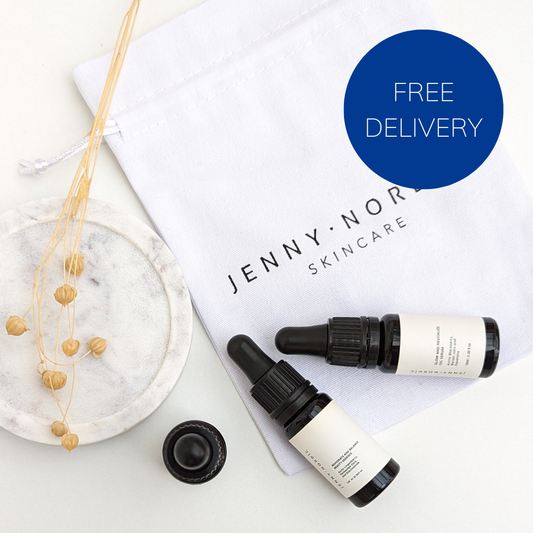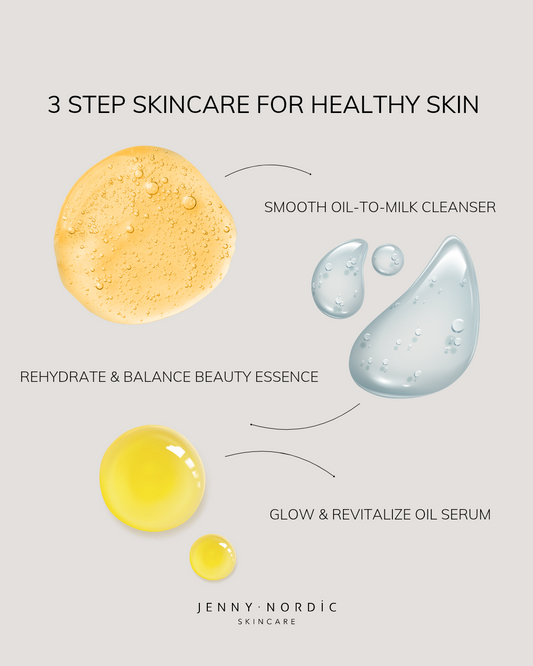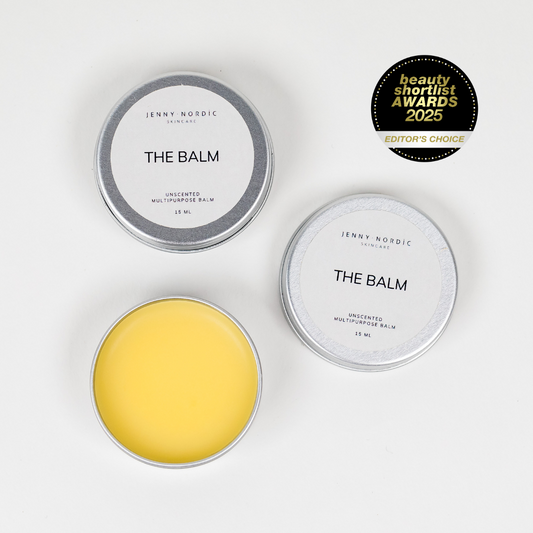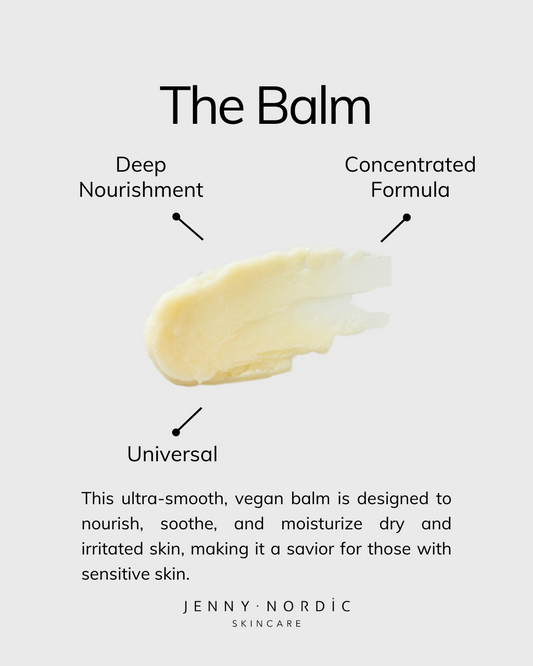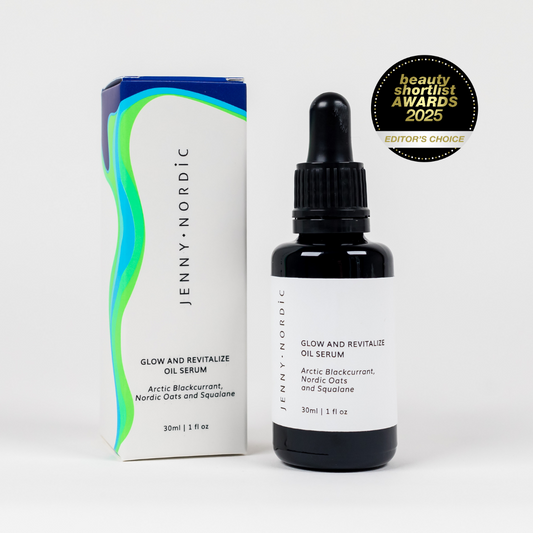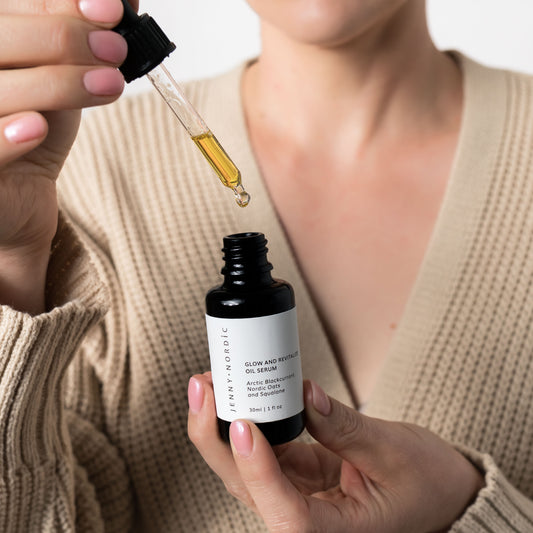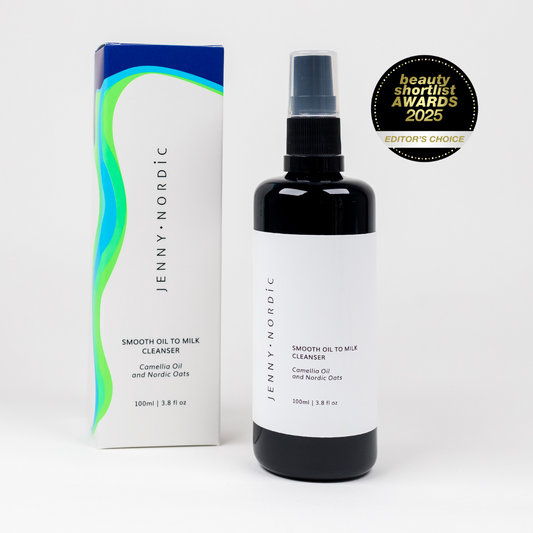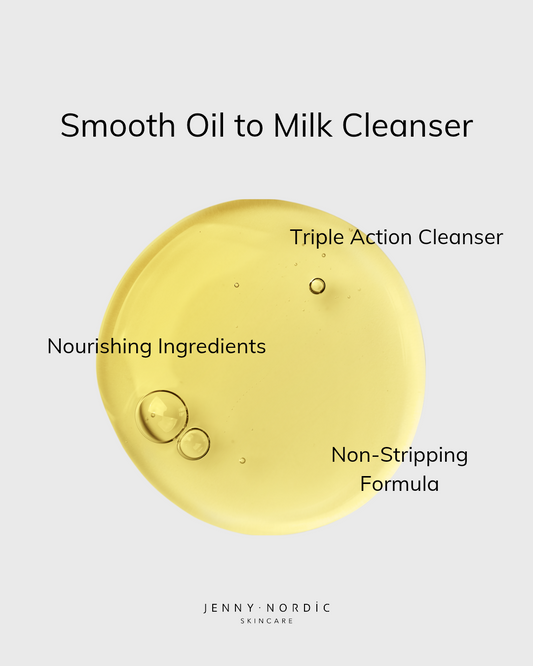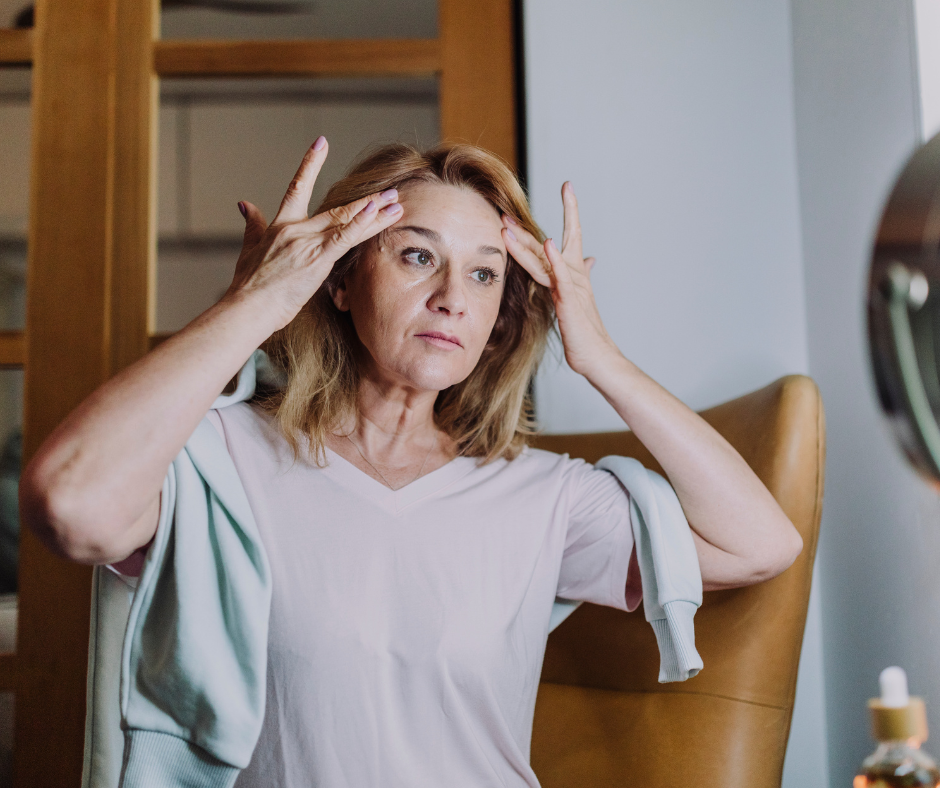
Unlocking the secrets to radiant skin and healthy ageing
Share
Skin is our largest organ, and visible to everyone. We first start noticing the signs of ageing on the skin on our faces. Modern culture and its beauty ideals tell us daily that ageing is not good, and we continue to seek more youthful looks. You might even ask, can we slow down ageing?

How does the skin age - the science behind it
Skin forms of three main layers - epidermis, dermis and subcutaneous tissue. As we age skin starts getting thinner, dryer and fine lines and wrinkles might show up and parts of the skin might start sagging.
What happens in the dermis determines skin ageing. The dermis is a connective tissue layer which starts losing its thickness as we age. The connective tissue comprises components such as collagen, elastin and hyaluronic acid.
Collagen is the main component of the dermis that holds its structure together. It makes up about 30% to 40% of proteins in the human body. As we age, its production naturally slows down. As collagen is responsible for the firmness and elasticity of the skin, the loss of collagen leads to wrinkle formation. The reduction in collagen production and the loss of hyaluronic acid further impacts the hydration and suppleness of the skin.
Elastin is a protein that provides stretch, recoil, and elasticity to the skin. Elastin fibres have a very slow turnover, and the loss of elastin shows as sagging on the skin.
Skin ageing is also associated with loss of skin moisture. Hyaluronic acid is probably the most famous skin component. It has a unique capacity to retain water. The hydration and youthful looks of the skin critically depend on the amount of hyaluronic acid in the dermis and in the epidermis.

Signs of ageing on the skin
Our skin is ageing in two ways. The two ways are called intrinsic or physiological ageing and extrinsic or premature ageing due to external factors.
Intrinsic ageing
Intrinsic ageing, in short, means ageing we’re bound to go through, it’s a natural process that’s genetically determined. This type of ageing is physiological, depends on genes and time and varies between individuals. Contrary to the common belief intrinsic ageing doesn’t cause the majority of signs of ageing. It’s been estimated that intrinsic ageing accounts for only a portion of all ageing.
Extrinsic ageing
Extrinsic or environmental ageing means all the ageing that happens on top of intrinsic, genetically determined ageing. It happens due to external factors. The most known reasons for environmental ageing are the sun, smoking and drinking, pollution, lack of sleep and your diet.

How can I slow down ageing?
Can we do anything about skin ageing? And, do we really need to slow down skin ageing? As most of the signs of ageing are extrinsic, we can control them, at least to a point. But rather than regretting tanning, sun beds, smoking and other things you may have done whilst enjoying your life, we can shift the way to look at things.
Appreciating all the experiences in life that have brought us here, being grateful for life in general, and approaching ageing as a privilege can help shift thoughts. This does not mean you can’t take care of yourself - quite the contrary - appreciating it all means taking MORE care of yourself.

How can you take care of yourself and maintain healthy skin?
Skin barrier health
It all starts with a strong skin barrier. Skin ageing can lead to drier, thinner and more fragile skin, so strengthening the skin’s barrier is the key to healthy skin. A strong skin barrier protects the skin from irritation and inflammation. These can accelerate the loss of collagen, elastin and hyaluronic acid in the skin's deeper structures.
Product tip: Glow & Revitalize Oil Serum, Smooth Oil to Milk Cleanser, Rehydrate & Balance Beauty Essence
Antioxidants
Antioxidants protect the skin from free radicals and the oxidation they cause. Free radicals cause damage to lipids, proteins and DNA in our body which accelerates the signs of ageing to appear. Antioxidants are very effective in fighting this process and can improve skin health.
Product tip: Glow & Revitalize Oil Serum, Rehydrate & Balance Beauty Essence
Acids in skincare
As we age, our skin’s cellular turnover slows down which can show as roughness or dullness of the skin. Gentle acids can help to speed up the sloughing off of dead skin cells. This means they can also help to reduce the signs of hyperpigmentation on the skin.
Product tip: Rehydrate & Balance Beauty Essence
What about connective tissue production?
There are only a few ways to increase connective tissue production. Most skincare products don’t penetrate beyond the epidermis, the outermost layer of the skin. Retinoids are a rare group of ingredients that can penetrate the skin and help boost connective tissue production.
An alternative way to reach the connective tissue is a face massage. Face massage releases tension in the connective tissues. It allows blood flow to the skin cells, and therefore nourishes and detoxifies the cells. Facial massage helps relax facial muscles that tend to cause stress lines on the face.
Top tip: Join Jenny for a gua sha workshop to learn the right facial massage techniques to smooth fine lines, de-puff and activate connective tissue.

A simple skincare routine for healthy skin
- Keep clean. Go for a gentle cleanser that contains oils and steer away from soaps and other cleansers that can strip the skin’s protective barrier. Oil cleansing can benefit the skin as oil cleansers work great at dissolving makeup and grime in the pores and on the skin as well as providing additional moisture and skin barrier protection.
- Hydrate, hydrate, hydrate. Skin hydration is one of the most critical steps when it comes to maintaining healthy skin. Dehydrated skin happens when the body lacks water, or the water is escaping the skin due to external factors or poor skin barrier. Dehydrated skin can often show accelerated signs of ageing. You’ll recognise these wrinkles by their looks. They appear as a network of tiny, triangular fine lines. Dehydration can also show on the skin as sunken eyes and dull skin colour. Hydrate your skin from the inside out, drink plenty of water and avoid caffeine and alcohol. Add hydrating skincare products into your skincare routine.
- Lock it all in. Face oils and moisturisers are perfect at creating an occlusive barrier on the outer layer of the skin to prevent any hydration from escaping and helping to replenish moisture in the skin and also strengthen the skin barrier effect.
- Add a quick face massage whilst cleansing your face or applying your face oil to activate that connective tissue and help lymphatic draining.
- Protect. Use SPF daily to prevent your skin from signs of premature ageing.

PS. Come follow us on Instagram for more skincare tips and inspiration!

